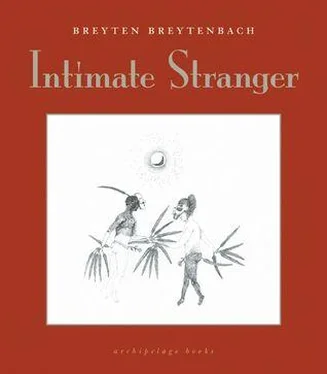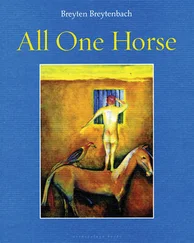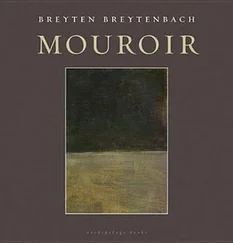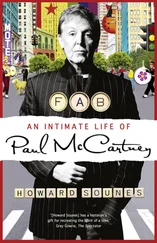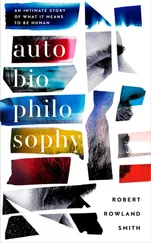But you don’t want it to go awry. How does one make of writing an honest woman, or a presentable kept man? You walk her or him on your arm down the street and you pretend she’s virtuous, maybe even virginal (and he honorable in his intentions and scrupulous in his thrusts). When you take her or him into your usual haunts you hope she won’t be indecently flashing her charms and her wares at the regulars, or he won’t go ogling and pawing the other dames.
Manuel Rivas makes the further point that fiction-writing often renders the unacceptable sayable. This task or effect, he suggests, is a form of public engagement. He refers to this function as la curación de sombras (the healing of shadows). He says that it habitually happened in his country that somebody in perfectly good health would go to the curandero (the healer) to complain that “I’m fine but I feel bad.”
The healer would answer that the malo (the illness) is in his shadow.
The historical story doesn’t interest him, Manuel Rivas says, since literature is in the camp of life, not that of History. He’d only be interested to check if that history was still present — alive or applicable. Two things worry him: the mechanisms of producing hate and the suspension of consciousness (or the conscience — in French ‘la conscience’ could mean both or either). History is a succession of things that ought never to have happened, and the writing act is a kind of revenge against this. Literature allows you to get closer to the real than you could through history or sociology since it reaches where witnesses cannot touch. Dreams and the imagination of what might have happened (or should have happened) will incarnate or say reality. The carpenter’s pencil speaking to the ear of the soldier about designing the scaffold brings about a link between the victim and the executioner, and this way of writing is more real than that which we denote as ‘realism.’ The real consists of concentric circles. Reality is but the first circle, the only visible one, and the most interesting parts can be found in the other circles. “To write is to be weaving in and out of the circle, as if one were invisibly stitching a cloth.”
Then he says: “It is ridiculous to believe that writing can change the world, but it may help you survive another night, one more night after the thousand and one nights, so as not to be cold.”
(mirror note 4)
Is the mirror the memory? Is it not true that memory is always in the present tense, with the tenseness of the unpassed present? In his Imaginative Horizons the anthropologist Vincent Crapanzano quotes Saint Augustine famously claiming that memory “is like a great field or a spacious palace, a storehouse for countless images of all kinds which are conveyed to it by the senses. In it are stored away all the thoughts by which we enlarge upon or diminish or modify in any way the perceptions at which we arrive through the senses, and it also contains everything else that has been entrusted to it for safe keeping, until such times as these things are swallowed up and buried in forgetfulness.” And later on he has Augustine suggesting that it is “a sort of stomach of the mind.” Which brings one by the ways of nature to digestion and to reflections on flatulence (a tautology, surely). To excretion. That which has not been absorbed, “buried in forgetfulness” (the mind), will be shat in words. And how are we to preserve the crap? Never before in the history of mankind has so much memory been created so effortlessly, odorlessly saved in electronic files, disseminated in blogs; never before have we been able to access and to log on so broadly. All together, in pealing silence, we establish an all-inclusive virtual consciousness. We could say God. How to stock it in time though? Soon we will not be able to access it — support, software, programs, the machines themselves will be nullified by time and become obsolete. As we forge and spread and imagine we wipe out. We will know everything and remember nothing. There will be no origin, only process. We will be the immaculately conceived offspring of Narcissus. The stomach will be a forgotten myth, the ass a dry mouth.
Ought we to apply a hierarchy of values to writing other than those, which emerge from and are embedded in the text itself? Is ‘long’ better than ‘short’? Is ‘reality’ more important than ‘imagination’? Should one adapt one’s imagination to reality? Why? To be more believable? And how? By allowing the lived experience ( le vécu ) or the biographical to become fictionalized?
The example of Pier Paolo Pasolini comes to mind: his private life subsumed his essays and his poems and thus became public — his ‘deviation’ as gay and communist (in Italy at that time still considered ‘abnormal’ for a young man of good provincial stock) became ideologically argued positions and certainly also shaped the themes and the intentions of his films. Often, he himself would enact a role in these works. Did he end up confusing his life with his creations? Was he, in a manner of speaking, sodomized by his own invented and nurtured existence, by the rough and tumble of his positions? He showed an enduring interest for the stories of the marginalized poor living on the outskirts of Rome, particularly the young men who were often part juvenile delinquent and part pimp. For him they had revolutionary potential. To be ‘without class,’ young and virile and rebellious, cruel and tender and still tied in a gory and mocking way to the rituals of Christian superstitions, was to be primed for revolution. And that’s how he dies, battered to death by one such occasional lover on a strip of vacant land near one of the grimy and gruesome ‘developments.’
Silvina Ocampo, the lady who worked so close to Jorge Luís Borges, transgresses the accepted writing norms in another way. She does not strive for the ‘unity of effect’ that E. A. Poe prescribed, nor is there often any logical, linear structure to her stories. Rather, what we get is a voluntary deconstruction. There is nearly never any singular discernable referent that could calm the play by excluding other angles of perception. For Silvina Ocampo, existence is unintelligible, and so she renounces logic and reason. For her, stories (to be found in Los días de la noche and La furia y otros cuentos , and I’d also recommend her novella, El amor es una droga dura ) must be like life, ambiguous and with neither rhyme nor reason. What fascinates her (and it transpires in her work) is the dark dimension of everyday existence. She will convey this fascination by her attention to detail, to the incongruous, to the disorderly. This focus without any meaning makes for a very powerful and present voice. Some may call the sort of product she delivers ‘fantastical,’ but it is neither arbitrary in its presentation of events nor marvelous in its reach for the supernatural; what she does bring along is the disorder of the occult, of the other side of the mirror, the sinkholes and the hollows we normally pretend not to see. As a critic pointed out: “Hers are the tales of an adult Alice.”
We are talking about form, and a little bit about movement.
Quite apart from ‘long’ and ‘short’ in fiction there are to my mind (and in general when we speak about writing) two kinds of form. The one is ‘formal,’ recognized and classified, which we’ll find pegged as novel , etc. — and within the same long form, say, we may then encounter a variety of genres such as the ‘picaresque’ or the ‘epic.’ I’m here of course referring to fixed forms like the sonnet or the ballad in poetry. In terms of this approach we’ll think of the novel as having more or less a given length and structured differently compared to the essay or short fiction.
Читать дальше
